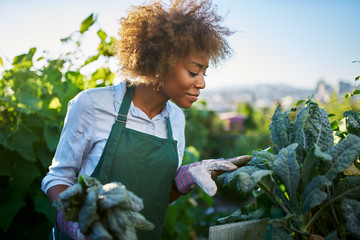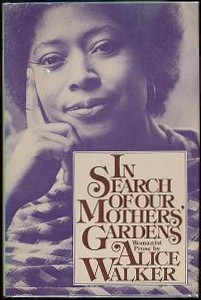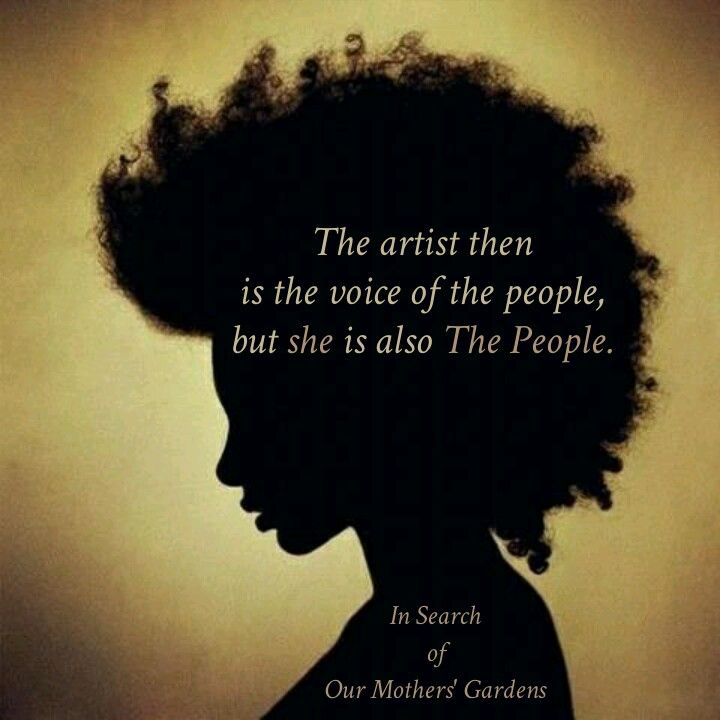When famed writer, and womanist, Alice Walker, wrote In Search Of Our Mothers’ Gardens (in 1972), the world was given a glimpse into Black America’s cultural gardens. And, not traditional understandings, of this peculiar community, as a political hub-having a male leader, without connecting him to his culture of women. No. This world was a brief illustration of those magical gardens-birthed, planted, toiled, labored, grown, and created by peculiar maidens. Those daughters and mothers of Black American soiling, who returned to the invisibilities of blackness, in order to create in foreign soiling. Soils, which were designed to be anti-Black. We are the Blackened flowers of US soiling, who glitter mysteriously in gardens; uniting Universal treasures, with Earth’s paradise. Circumstances, brutalities, and psychological violence against our existence, forced this.
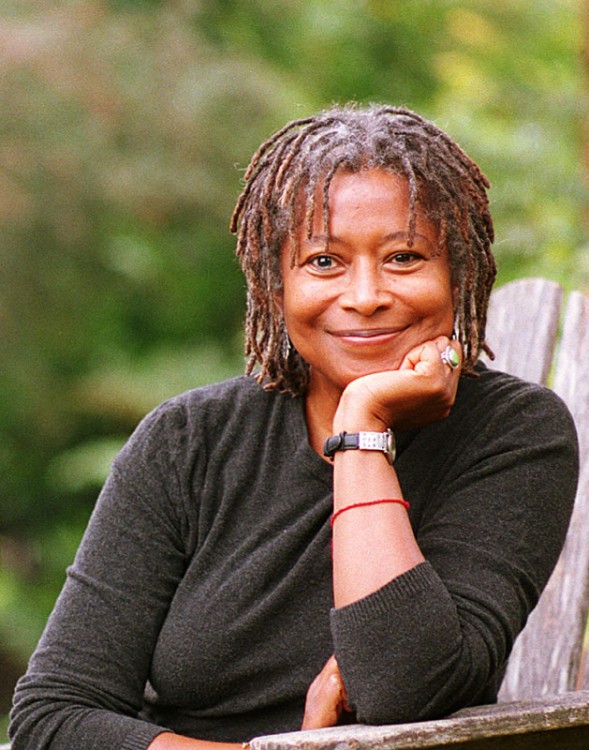
In this famous essay collection, we are given a lens into the context and sensory of those gardens. Silent. Yet boisterous. Colorful. Gracefully displayed. There is a mystery about these gardens because the maidens and mothers, of this spacing, are not operating in the natural way-the Earthly way. A way that acknowledges their identity and existence. There is something unnatural going on for Black American mothers and maidens, who occupy this garden. They are restricted. Stifled. Wanting to tell many stories and paint their existence in. . .their gardens. Doing what women do. Crafting their existence for the next generation of Black American maidens. And yet, they appear, invisible. There. Obvious and present, by those who choose to recognize their existence. Though, based on Walker’s capturing of these Beings, it is clear that these feminine Beings have been ignored. Purposefully ignored. And attempts have been conducted, to render this garden “maidenless,” “motherless,” and without an authentic, feminine presence, that birthed it. Walker is masterful, in her ability to convey this silent agreement, without stating it. Rather, she is keen, and strategic; using sensory description, in articulating the aura, climate, and societal realities, of their existence.
Nevertheless, the women of this garden are not simply taking societal injustices and the psychological (and emotional) violence against their Being, lightly. The creativity, music, poetry, and other exertions from their existence speaks on these frustrations. Even if they come out silently, they are not. . .silent.
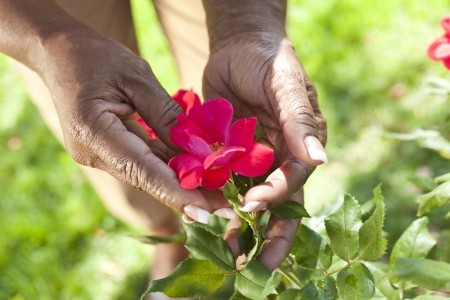
There are White American visitors coming to visit these gardens. Curious. Wanting to see these peculiar, Negro women, without truly, seeing them. Studying them. Taking note of their presence, without ever trying to admit or honor their feminine Being, womanhood, and its connection to land. Just watching. Observing. Curious. Yet, still wanting to maintain. . .control. Stifling their Black American, female existence, with illusions of power. And, should they end up sampling and tasting their gardens, they will establish designs to ensure that the Maidens and Mothers of these gardens are not in control, nor fully benefiting from them. Ravaging them as they please, with no thought, or care for their restoration.
This famed essay, by Alice Walker, is still relevant today. Moreso than ever, as Black America’s mother, maidens, and womenfolk are taking precedence in the political realm. We are there. Simultaneously, are we protecting our gardens?
When Black American women are intelligent, successful, and valuable, they are. . .useful. Yet, useful, for who? There are many who see our existence as valuable when we are outside of our gardens. Which means that in another’s “care” or “protection,” we are vulnerable. Under design in their system, culture, and rules. Many of the maidens are, however, enticed by these opportunities because we receive higher monetary value, in payment, and more opportunities, than in our cultural gardens. Which means Black American maidens, and womenfolk, have become devalued, taken for granted, unappreciated, and made invisible, in our own gardens. Now, the only time many of us express our frustration, rage, or anguish is when we want to take it out on other Black American maidens; especially, against those who have found success, in the feminine.
Are we protecting our gardens? Are we trying to find them?
It seems that many of we, successful Black American women, lose sight of that. Finding success in the mainstream overshadows a collective spacing of our own. Too many have forgotten what our foremothers have left for us. Too many are oblivious, that they are there. Leaving them defenseless, and “up for grabs,” by foreign maidens, who often see themselves as “superior” to our very existence. Using them for their selfish exploitations and greed. Seeing them as access to a more simple and comfortable life. A haven for the protection of their femininity and womanhood; while supporting lies and deceptions, to keep us from the fruits of our gardens. There is no reciprocity or equal exchange. We, Black American maidens (and mothers), lose, when our gardens are not protected, nurtured, nourished, and secured. . .by us.
The call continues. . .What Walker conveyed years ago, is more pressing. . .today. For, if we, Black American Maidens and Mothers do not heed that call, and find our gardens, it is, we, who will be kicked out of them. . .for good. And, we will not be allowed to return, for another presence, not of our own, will have occupied them. Such attempts have already taken place.
You see the gardens. Now, what do you do?
When we have made the decision that we are the maidens, mothers, and womenfolk, of our culture, then we stand in our name. Unapologetically. We, Black American women, are the women, of Black America. There is no discussion in that. We claim our culture, our music, linguistics, aesthetics, culinary, imagery, fashion, and so much more. We claim what our foremothers created in the past. We claim what we have created in the present. And, we continue to claim the gardens, and our fruition from them, in the future. That is the first, and most important, step. And, it is not enough to call ourselves, black. I remember a valuable point brought up by a member of Twitter (whose identity is currently, oblivious), who articulated that for Black Americans to simply call ourselves, black, is a “flatness” of our identity. She is truly correct. It strips us from any connection to land; depicting us as a free energy space of blackness to be utilized at other’s free will. Centralizing ourselves in this way, as Black Americans, is crucial. Thereby, creating a foundation for our communities. One, where there is recognition (and vigilance) of our feminine image. Connecting Black American men and boys to an understanding of balance, in our communities. Restoring, healing, and allowing our gardens to flourish for the nutrition of our people.

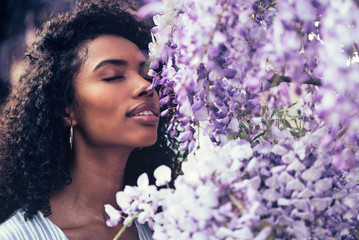
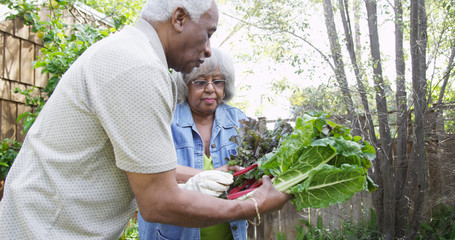
Maidenal Work
Once Black American maidens return to the gardens of Black America’s soiling, the tending, planting, harvesting, and re-planting begins. For the maidens, of any culture, are responsible for caring for the garden. Their creativity and feminine aura, keeps spice, vivacity, fun, playfulness, and vitality in them. Maidens are also reminders that future seedlings must also be made, in order to continue that community (and culture) of people. Maidens also give meaning to those Mother images. Let it be known that the mother image is not restricted to having born children. There’s the mothering of knowledge, production, and countless other activities. It also includes mentorship. Maidens are important for the work of Mother images. In the case of Black American women, Herstory has shown us that Mothers without their maidens become “Mammies,” to be used by others. Maidens without their gardens become maids, in someone else’s garden. And a maid is a maid. No matter how professional, or educated, she is, if she is without her garden; or knowledge of it.
In returning to our gardens, we, maidens of Black America, can receive the nourishment and nutrition, that our Being, needs. That it requires. Free from stress, exploitation, and the enslavement of our very existence. We need to return. Our mental health, emotional existence, and wellness, depends on it. Just think about it. Its why women grow gardens.
And, still, the call continues. Alice Walker’s masterpiece was made for the restoration of Black American women, in our own communities. Restoration, and rejuvenation, of our imagery, femininity, and womanhood. Then again, we have to be searching for those gardens. Once we, the maidens of the garden, begin that search, we will end up finding them. It may take a while. For some, mentally, it will take time, in their desires. . .to search. Yet, once we find them, it is without a doubt, that the wisdom and knowledge of our foremothers (as foretold by Alice Walker), will still be there. Waiting for us to collect and assess. Once that takes place, we will have re-rooted our presence. Honoring and restoring our past womenfolk, who left behind those gardens, for a way of future maidens, forward.
